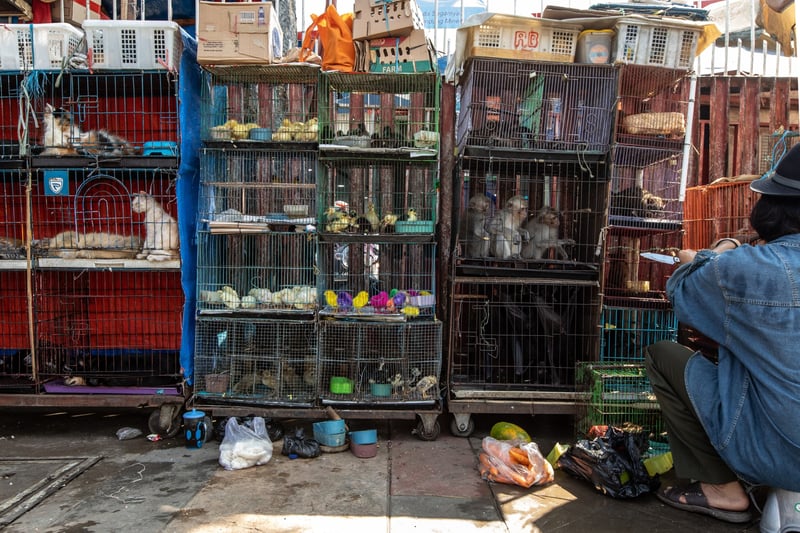
Destructive wildlife trade must be the priority for G20
News
The debate about how to stop future coronavirus pandemics has begun, and not before time. But the discussion so far is fixated on live animal markets and whether they can be better regulated.
By Simone Clarke, Executive Director, World Animal Protection ANZ
This singular focus obscures the need for a more comprehensive response - a ban on the trade in wild animals, the source of this and previous coronavirus outbreaks. The G20 needs to make this ban a priority at its November Summit.
Understanding the source of this pandemic is essential to preventing another one. COVID-19 is a zoonotic disease, meaning the virus originated in animals and was passed to humans. Sixty percent of emerging infectious diseases are zoonotic, with seventy percent of these thought to originate from wild animals. In the case of COVID-19 and previous virus-related pandemics, the outbreak started at a live animal market. The Prime Minister was right to express concern about these markets reopening, but he needs to go further.
Live animal markets are just the most shocking and visible part of the cruel and dangerous global trade in wild animals which must be banned to avoid future disease outbreak. Millions of wild animals are captured, bred and traded every year for medicine, clothing, pets and entertainment. For those that are not slaughtered upon capture, their lives are ones of boredom, abuse and suffering.
The horrors of the wildlife trade should be reason enough to ban it. Yet the COVID-19 disaster demonstrates that the trade is not just an animal welfare catastrophe, it is a global health risk.
Wild animal diseases are usually not a significant risk to people, because there is limited opportunity for the pathogens to infect people as long as the animals live in the wild. Pathogens jumping to different wild species is also less common in the wild, reducing the risk of them becoming infectious to humans. This changes however, when wildlife trade occurs. Often, the wildlife trade brings together an array of animals that would typically have no contact in the wild, creating a hotbed of lethal diseases.
The appalling and stressful conditions that the animals endure ensures they are immunosuppressed, making it even more likely they will succumb to infection or harbor pathogens. By bringing those animals into contact with humans in a variety of ways, the trade makes it possible for new diseases to arise and jump the species barrier.
Stopping future disease outbreaks means rethinking our relationship with wild animals.
Exploiting and commodifying wild animals is not just unethical, it is unsafe. We need to start practising social distancing between humans and wild animals, leaving wild animals in the wild, where they belong.
There are already positive signs that change is happening. The Chinese government has put in place a temporary wildlife trade ban and a ban on consumption of wildlife, as did the Vietnamese government. But, with fears live animal markets may reopen after lockdowns are lifted, as they did after the SARS coronavirus outbreak of 2003, more needs to be done.
Permanent and comprehensive bans must be applied across all wildlife trade and be properly enforced. The alternative is waiting for the next coronavirus to jump the species barrier and inflict further death and devastation. There can be no greater priority for the G20, and Australia.
Stopping future disease outbreaks means rethinking our relationship with wild animals.